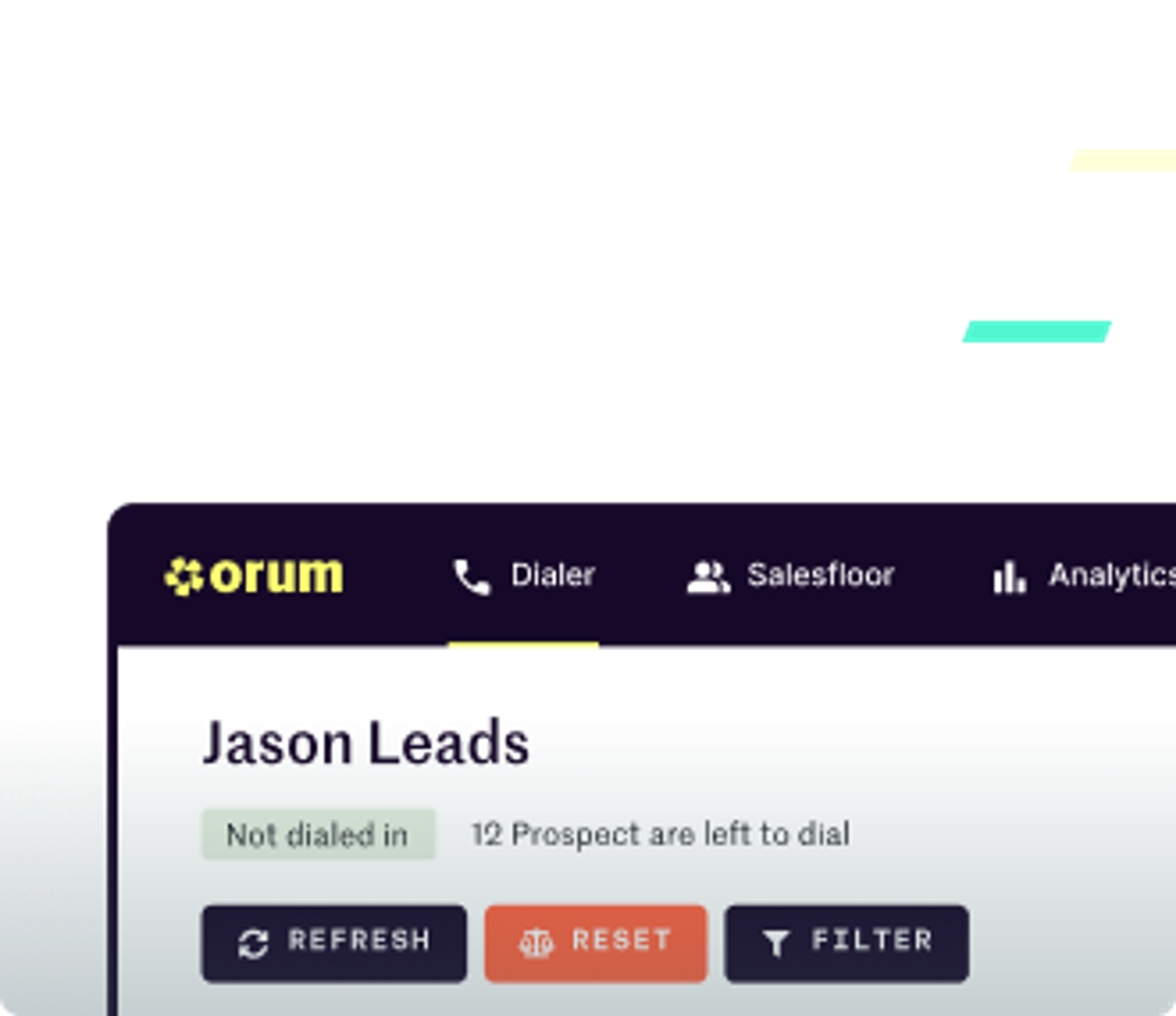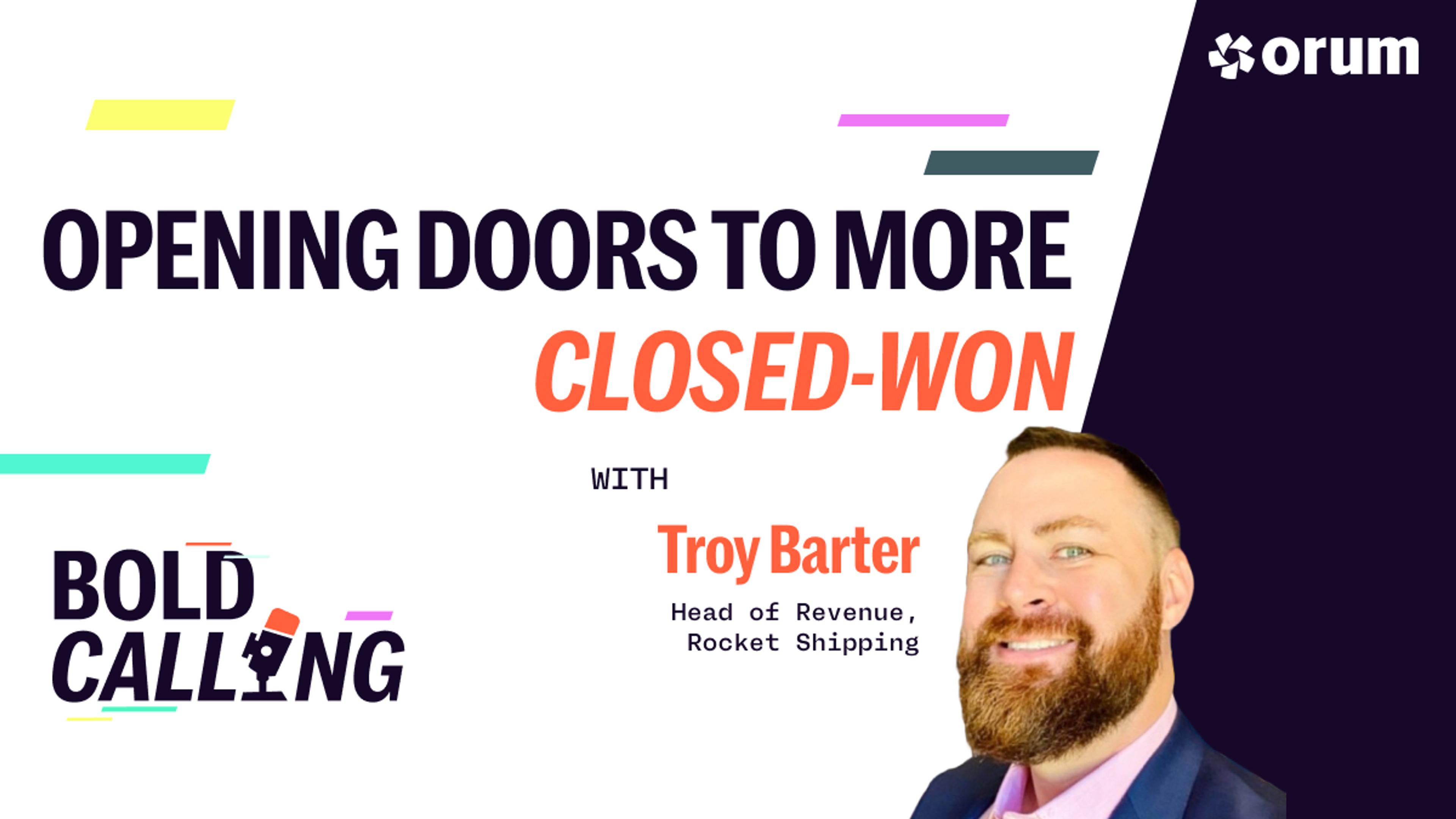Must-Have Cold Call Weekly Games and Structures


Cold calling continues to be the best way to build pipeline, empowering reps to have direct conversations with prospective customers, adjust talk tracks in real time, and understand what resonates with their ICP.
That said, much like any other task, cold calling can get repetitive for sales reps as they hit the phones day after day. To keep the energy high and motivation strong, introducing engaging and structured games into the routine is a game-changer. This guide explores effective strategies and exciting games to make cold calling a highlight of the week for your sales team.
Why Cold Call Games Matter
Sales teams thrive on competition, camaraderie, and recognition. Weekly games and incentives keep things fresh, break up the monotony, and create a supportive environment.
As Colin Specter, Orum SVP of Revenue, emphasizes, “People love bragging rights often more than the DoorDash gift cards. Think of something that aligns with your culture that you can, you know, really shout people out, and salespeople love the pat on the back and the public praise.”
Essential Cold Call Games and Incentives
1. Everybody Eats
- Concept: If every team member books a set number of meetings during the call block, the entire team wins a lunch prize.
- Prize: DoorDash gift cards or catered lunch.
- Purpose: Encourages team spirit and collective effort. Everyone roots for each other, and the win is celebrated together.
- Colin's Insight: “We have a SPIF called ‘Everybody Eats’ that the SDR team runs where if everyone books a meeting or a certain number of meetings during their call block, everybody gets a DoorDash gift card for that day. It’s all about team camaraderie.”
2. Rep of the Week
- Concept: Awarded to the rep with the most booked meetings or who demonstrated exceptional skill in handling objections or a complex call.
- Prize: A rotating trophy, special parking spot, or public recognition.
- Purpose: Provides bragging rights and a sense of accomplishment, often valued more than material prizes.
- Colin's Take: “Shout-outs on Slack or the sales floor, like really public displays of calling out what good looks like, are key. It shows the team what you value and gives them something to aim for.”
3. Manager Payback
- Concept: The manager books a meeting for the top-performing rep from the previous week.
- Prize: Manager’s effort in booking a meeting or taking on an administrative task for the winning rep.
- Purpose: Reinforces friendly competition while also providing relief for top performers.
- Colin's Note: “Whoever booked the most meetings last week, your manager will book a meeting for you this week. It’s a fun way to reward hard work and keep everyone engaged.”
4. Big Prize Competitions
- Concept: Long-term SPIFs, such as trips or high-value gift vouchers, for booking the highest ARR or most new logos from a targeted list over a quarter.
- Prize: Two round-trip tickets to anywhere in the world, travel vouchers, or conference attendance like Surf & Sell.
- Purpose: Keeps reps motivated over a longer period, with enticing and memorable rewards.
- Colin's Example: “Right now, we’re running a SPIF that whoever books the most ARR and number of logos from specific competitors gets two round-trip tickets anywhere in the world. People love fun, creative prizes.”
Structuring Weekly Games
Step 1: Budget Allocation
- Quarterly Budget: Allocate a set budget for managers to run weekly and quarterly games. This should be part of your annual financial planning.
- Approval Process: Establish a straightforward approval process using tools like Notion or a shared spreadsheet to track expenditures against the budget.
- Colin’s Advice: “You should submit during your fall planning your estimated budget for SPIFs. I give out a certain amount of money to each manager, and they can use it quarterly for their mini-games while having a broader pool for bigger team-wide SPIFs.”
Step 2: Game Guidelines
- Align with Team Culture: Choose games that resonate with your team and reinforce positive behaviors.
- Involve the Whole Team: Some games should encourage teamwork, while others can be individual competitions.
- Incorporate Recognition: Use platforms like Slack or host a team meeting to celebrate winners and share success stories.
Longer-Term Games and Structures
1. Quarterly Challenges
- Concept: Track performance over a quarter with escalating rewards based on achievement levels.
- Prizes: Vouchers, sales training courses, or exclusive experiences.
- Implementation: Create leaderboards and use visual updates to maintain excitement.
2. Travel-Inspired SPIFs
- Concept: Reward significant accomplishments, like winning new business from a key competitor.
- Prizes: High-value, memorable experiences, such as an all-expenses-paid trip or conference passes.
- Planning: Coordinate with finance well in advance, ensuring funds are allocated and approvals are in place.
Tips for Managers
- Be Present: Actively engage with reps during call blocks. Walk the sales floor if you’re in person, join the virtual Salesfloor if you’re remote, and provide on-the-spot coaching.
- Monitor and Motivate: “You’re on the floor with the team, monitoring KPIs and coaching them if they need help,” Colin explains. “Keep them focused on the main thing during the call block.”
- Flexibility in Rewards: Be prepared to adapt games to what energizes your team. Maintain a slush fund for spontaneous incentives that align with new goals.
Incorporating weekly cold call games and structured incentives can transform the sales experience. By mixing short-term wins with long-term SPIFs, you’ll keep your team motivated, engaged, and consistently hitting their targets. As Colin Specter puts it, “People love games, so let’s make every call block an event worth looking forward to.” Let the games begin!





